Physical Measuring Instruments
Showing all 23 results
- Other Physical Measuring Instruments, Physical Measuring Instruments, Testing Instrument & Equipment
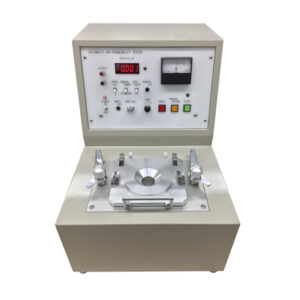
Air Permeability Tester KES-F8 – KATO TECH CO.LTD.
Other Physical Measuring Instruments, Physical Measuring Instruments, Testing Instrument & EquipmentAir Permeability Tester KES-F8 – KATO TECH CO.LTD.
The KES-F8 Air Permeability Tester is designed to quickly and accurately measure the breathability and permeability of a wide range of samples, from those with high permeability, such as stockings, to those with low permeability, such as synthetic leather.
Samples can be mounted in just a few seconds using the handle, and measuring is also incredibly simple.
SKU: n/a - Other Physical Measuring Instruments, Physical Measuring Instruments, Testing Instrument & Equipment

Automatic Vacuum Cooling Characteristic Tester – Iwasaki System Corporation
Other Physical Measuring Instruments, Physical Measuring Instruments, Testing Instrument & EquipmentAutomatic Vacuum Cooling Characteristic Tester – Iwasaki System Corporation
Developing new products with originality, ingenuity and enthusiasm
Measuring device for JIS cooling curve at a given vacuum level
SKU: n/a - Other Physical Measuring Instruments, Physical Measuring Instruments, Testing Instrument & Equipment
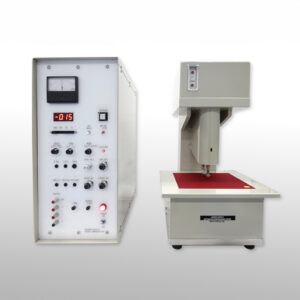
Compression Tester KES-FB3-A – KATO TECH CO.LTD.
Other Physical Measuring Instruments, Physical Measuring Instruments, Testing Instrument & EquipmentCompression Tester KES-FB3-A – KATO TECH CO.LTD.
Compression characteristic data is useful for determining fullness and softness, smoothness, anti-drape stiffness.
The KES-FB3-A Compression Tester analyzes hand movements-particularly, pushing with a finger-performed by artisans and professionals when judging a fabric’s texture. This device performs this movement mechanically, making it possible to obtain objective numerical data.
Obtainable data includes compression rigidity, compression energy, and recoverability for such targets as general fabric, cloth, paper, and non-woven fabric.SKU: n/a - Other Physical Measuring Instruments, Physical Measuring Instruments, Testing Instrument & Equipment
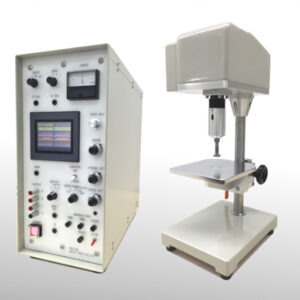
Compression Tester KES-G5 – KATO TECH CO.LTD.
Other Physical Measuring Instruments, Physical Measuring Instruments, Testing Instrument & EquipmentCompression Tester KES-G5 – KATO TECH CO.LTD.
The KES-G5 Compression Tester analyzes hand movements-particularly, movements by finger-performed by artisans and professionals when judging a fabric’s texture.
Obtainable data includes compression rigidity, compression energy, and recoverability.
The machine can be applied to a wide variety of fields and purposes, including determining the softness of disposable diapers and the hardness of mousse.SKU: n/a - Physical Measuring Instruments, Speed Measuring Instruments, Testing Instrument & Equipment

DIGITAL TACHOMETER SE300 – Sanwa Electric Instrument Co. Ltd.
Physical Measuring Instruments, Speed Measuring Instruments, Testing Instrument & EquipmentDIGITAL TACHOMETER SE300 – Sanwa Electric Instrument Co. Ltd.
Non-contact Digital Tachometer
・Designed in pursuit of the ease of holding to enable stable measurement
・Long detection distance in non-contact measurement (max. approx.50 cm) enabling measurement from a distance from the rotating object
・Auto power OFF function (approx. 2 min., cancellation possible) and Bright backlight
・MAX/MIN display function
・Fixed installation possible using a commercially available camera tripodSKU: n/a - Other Physical Measuring Instruments, Physical Measuring Instruments, Testing Instrument & Equipment
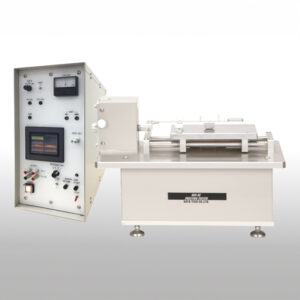
Friction Tester KES-SE – KATO TECH CO.LTD.
Other Physical Measuring Instruments, Physical Measuring Instruments, Testing Instrument & EquipmentFriction Tester KES-SE – KATO TECH CO.LTD.
The KES-SE Friction Tester analyzes hand movements-particularly, strokes-performed by artisans and professionals when judging a fabric’s texture.
The device performs this movement mechanically, making it possible to obtain objective numerical data while offering more enhanced versatility over the KES-FB4-A Surface Tester.
Obtainable data includes average frictional coefficient, and fluctuation of average frictional coefficient. From these characteristic values, the KES-SE evaluates and quantifies smoothness, slipperiness, and roughness felt when actually touching the target in order to provide objective data.SKU: n/a - Other Physical Measuring Instruments, Physical Measuring Instruments, Testing Instrument & Equipment

In-Line Non-Contact Gloss Tester GLS-2060 – MSJ Creative research Laboratory
Other Physical Measuring Instruments, Physical Measuring Instruments, Testing Instrument & EquipmentIn-Line Non-Contact Gloss Tester GLS-2060 – MSJ Creative research Laboratory
Non-contact, real-time measurement and display of change data over time.
As a gloss meter, it can quickly monitor the condition of the production line. All measurement data obtained as a gloss meter are saved for later detailed evaluation and study.
SKU: n/a - Other Physical Measuring Instruments, Physical Measuring Instruments, Testing Instrument & Equipment
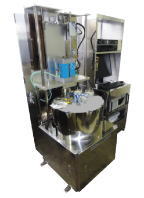
JIS standard testing machine (automatic TYPE hardening) 2station – Iwasaki System Corporation
Other Physical Measuring Instruments, Physical Measuring Instruments, Testing Instrument & EquipmentJIS standard testing machine (automatic TYPE hardening) 2station – Iwasaki System Corporation
Developing new products with originality, ingenuity and enthusiasm
Measuring device of temperature change of thermocouple by silver specimen and alumel for analysis of cooling performance of quenched oil.
SKU: n/a - Other Physical Measuring Instruments, Physical Measuring Instruments, Testing Instrument & Equipment

JIS standard testing machine (automatic TYPE hardening) 6station – Iwasaki System Corporation
Other Physical Measuring Instruments, Physical Measuring Instruments, Testing Instrument & EquipmentJIS standard testing machine (automatic TYPE hardening) 6station – Iwasaki System Corporation
Developing new products with originality, ingenuity and enthusiasm
Measuring device of temperature change of thermocouple by silver specimen and alumel for analysis of cooling performance of quenched oil.
SKU: n/a - Other Physical Measuring Instruments, Physical Measuring Instruments, Testing Instrument & Equipment

Micro machining (micro discharge drilling machine) – Shinyo Seiki Manufacturing Co.
Other Physical Measuring Instruments, Physical Measuring Instruments, Testing Instrument & EquipmentMicro machining (micro discharge drilling machine) – Shinyo Seiki Manufacturing Co.
Precision and meticulousness” that accurately reads the needs of the customer creates a product that is alive and well.
Micro Drilling Machine, the basic machine tool for micromachining
SKU: n/a - Other Physical Measuring Instruments, Physical Measuring Instruments, Testing Instrument & Equipment

Nano-Satellite ShindaiSat – Shinyo Seiki Manufacturing Co.
Other Physical Measuring Instruments, Physical Measuring Instruments, Testing Instrument & EquipmentNano-Satellite ShindaiSat – Shinyo Seiki Manufacturing Co.
The world’s first experimental communications satellite using visible light from light-emitting diodes (LEDs).
Finally, ShindaiSat, a nano-satellite born in Shinshu, Japan, was launched into space from Tanegashima on February 28, 2014, by the H-2A rocket of the Japan Aerospace Exploration Agency (JAXA) in 2013.
SKU: n/a - Other Physical Measuring Instruments, Physical Measuring Instruments, Testing Instrument & Equipment
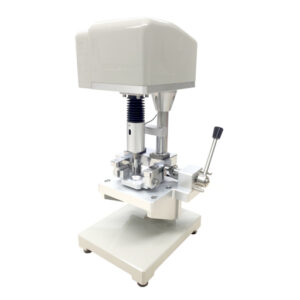
Puncture Strength Tester NDG5 – KATO TECH CO.LTD.
Other Physical Measuring Instruments, Physical Measuring Instruments, Testing Instrument & EquipmentPuncture Strength Tester NDG5 – KATO TECH CO.LTD.
This testing machine measures the piercing strength required for a needle to penetrate a sample.
It is to measure rupture strength by applying force at a right angle, used for testing physical properties of battery separators.
The NDG5 can be used to evaluate the strength of film inside lithium-ion batteries (separators) and to measure the strength required to pierce packaging materials such as food packaging films.SKU: n/a - Other Physical Measuring Instruments, Physical Measuring Instruments, Testing Instrument & Equipment
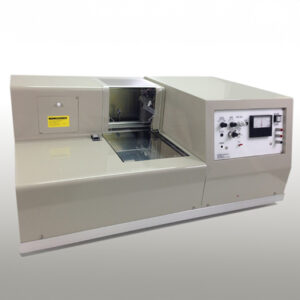
Pure Bending Tester KES-FB2-A – KATO TECH CO.LTD.
Other Physical Measuring Instruments, Physical Measuring Instruments, Testing Instrument & EquipmentPure Bending Tester KES-FB2-A – KATO TECH CO.LTD.
The KES-FB2-A Pure Bending Tester analyzes hand movements-referred to as “bending”-performed by artisans and professionals when judging a fabric’s texture.
Obtainable data includes bending rigidity and recoverability for such targets as general fabric, cloth, paper, non-woven fabric, and film.
Bending characteristic data is useful for determining stiffness and fullness, softness, anti-drape stiffness.SKU: n/a - Other Physical Measuring Instruments, Physical Measuring Instruments, Testing Instrument & Equipment
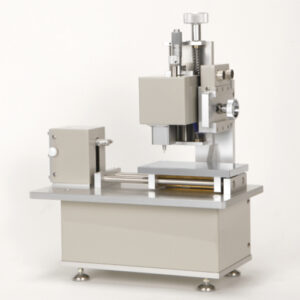
Roughness/Friction Tester KES-SESRU – KATO TECH CO.LTD.
Other Physical Measuring Instruments, Physical Measuring Instruments, Testing Instrument & EquipmentRoughness/Friction Tester KES-SESRU – KATO TECH CO.LTD.
The KES-SESRU Roughness/Friction Tester analyzes hand movements-particularly, strokes-performed by artisans and professionals when judging a fabric’s texture.
In addition to average frictional coefficient and fluctuation of average frictional coefficient, surface roughness data is obtained. The device is also suitable for light texture conditions and hair measurement.
SKU: n/a - Other Physical Measuring Instruments, Physical Measuring Instruments, Testing Instrument & Equipment

Single-acting cooling characteristic tester – Iwasaki System Corporation
Other Physical Measuring Instruments, Physical Measuring Instruments, Testing Instrument & EquipmentSingle-acting cooling characteristic tester – Iwasaki System Corporation
Developing new products with originality, ingenuity and enthusiasm
Measuring device of temperature change of thermocouple by silver specimen and alumel for analysis of cooling performance of quenched oil.
SKU: n/a - Physical Measuring Instruments, Speed Measuring Instruments, Testing Instrument & Equipment
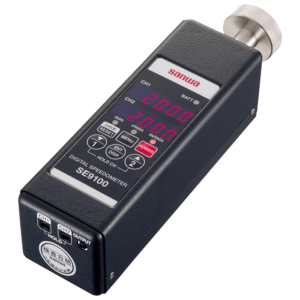
SPEED METER SE9100 – Sanwa Electric Instrument Co. Ltd.
Physical Measuring Instruments, Speed Measuring Instruments, Testing Instrument & EquipmentSPEED METER SE9100 – Sanwa Electric Instrument Co. Ltd.
Speedometer for elevator/lift and measurement of escalator emergency stop distance
・Speed of high speed elevator can be measured up to 2000.0 m/min
・Two independent data hold (CH1/CH2) functions plus maximum value hold function
・Memory storage of held value and maximum value
・Data hold by external triggering
・Movement average value display (average frequency setting can be set at any of 1 to 10 times)
・Analog output of measurement value
・Measurement of emergency stop distance for a escalatorSKU: n/a - Other Physical Measuring Instruments, Physical Measuring Instruments, Testing Instrument & Equipment

Steady-state Thermal Conductivity Measuring Device SS-H40 – BETHEL Co. Ltd.
Other Physical Measuring Instruments, Physical Measuring Instruments, Testing Instrument & EquipmentSteady-state Thermal Conductivity Measuring Device SS-H40 – BETHEL Co. Ltd.
Multifunctional and high-performance “steady-state method” thermal conductivity measuring device
[ Fast measurement ] A measurement that previously took several hours is now 10-20 minutes per measurement !
SKU: n/a - Other Physical Measuring Instruments, Physical Measuring Instruments, Testing Instrument & Equipment
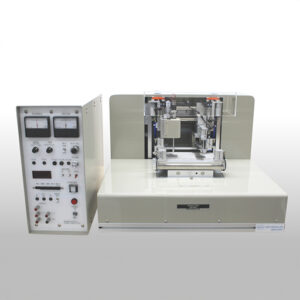
Surface Tester KES-FB4-A – KATO TECH CO.LTD.
Other Physical Measuring Instruments, Physical Measuring Instruments, Testing Instrument & EquipmentSurface Tester KES-FB4-A – KATO TECH CO.LTD.
The KES-FB4-A Surface Tester analyzes finger movements-particularly, strokes-performed by artisans and professionals when judging a fabric’s texture.
Obtainable data includes frictional coefficients, fluctuations of frictional coefficients, and surface roughness for such targets as general fabric, cloth, paper, non-woven fabric, and film. Surface friction and roughness characteristic data is useful for determining fullness and softness, smoothness, crispness.
SKU: n/a - Other Physical Measuring Instruments, Physical Measuring Instruments, Testing Instrument & Equipment
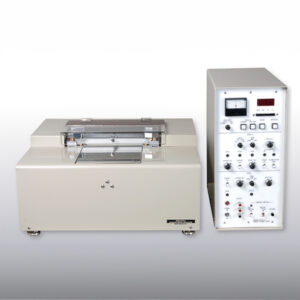
Tensile and Shear Tester KES-FB1-A/AW – KATO TECH CO.LTD.
Other Physical Measuring Instruments, Physical Measuring Instruments, Testing Instrument & EquipmentTensile and Shear Tester KES-FB1-A/AW – KATO TECH CO.LTD.
The KES-FB1-A Tensile and Shear Tester analyzes hand movements-referred to as “tensile” and “shear”-performed by artisans and professionals when judging a fabric’s texture.
This device performs these movements mechanically, making it possible to obtain objective numerical data.
Obtainable data includes tensile/shear rigidity, tensile energy, elongation rates, and recoverability for such targets as cloth, paper, non-woven fabric, and film.
Tensile and shear characteristic data is useful for determining stiffness and anti-drape stiffness. These properties often influence form stability and the tendency for wrinkles.SKU: n/a - Other Physical Measuring Instruments, Physical Measuring Instruments, Testing Instrument & Equipment
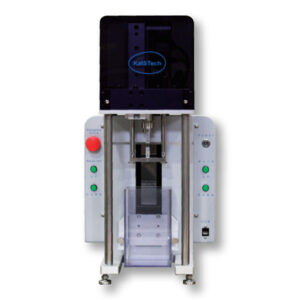
Tensile rupture tester KES-TSSH – KATO TECH CO.LTD.
Other Physical Measuring Instruments, Physical Measuring Instruments, Testing Instrument & EquipmentTensile rupture tester KES-TSSH – KATO TECH CO.LTD.
A testing machine that can measure tensile, stress-relaxation, andrupture characteristics of hair, etc.
Each characteristic can be measured with up to 10 hairs.
It can be applied for various purposes such as the testing of the tensile strength of heat damaged hair or the hair elongation rate before and after shampooing.SKU: n/a - Other Physical Measuring Instruments, Physical Measuring Instruments, Testing Instrument & Equipment

Thermal Evaluation of Fiber Orientation Distribution – BETHEL Co. Ltd.
Other Physical Measuring Instruments, Physical Measuring Instruments, Testing Instrument & EquipmentThermal Evaluation of Fiber Orientation Distribution – BETHEL Co. Ltd.
Quantify fiber orientation and thermal diffusivity at high speed and non-contact!!
A system that visualizes the fiber state inside the sample by “fiber orientation identification method”
SKU: n/a - Other Physical Measuring Instruments, Physical Measuring Instruments, Testing Instrument & Equipment

Thermal Microscope TM3 – BETHEL Co. Ltd.
Are you looking for a Physical Measuring Instruments product?
When selecting Physical Measuring Instruments for your company’s needs, there are several important points to consider during the comparison and evaluation process.
1. Accuracy and Precision
Check the accuracy and precision specifications of the instrument to ensure it meets the required measurement standards.
2. Measurement Range
Evaluate the measurement range of the instrument to ensure it can handle the minimum and maximum values needed for your application.
3. Resolution
Consider the resolution of the instrument, which determines the smallest increment it can detect, to ensure it meets your measurement needs.
4. Calibration and Traceability
Check if the instrument requires regular calibration and if calibration certificates with traceability to national or international standards are provided.
5. Durability and Build Quality
Assess the durability and build quality of the instrument, especially if it will be used in harsh or demanding environments.
6. User Interface and Ease of Use
Evaluate the user interface and ease of use, including features like touchscreen, intuitive controls, and data display.
7. Data Output and Connectivity
Check the available data output options (e.g., USB, Bluetooth, Ethernet) and compatibility with data analysis software.
8. Safety Features
Ensure the instrument has appropriate safety features to protect users and samples during measurements.
9. Portability and Size
Consider the portability and size of the instrument, especially if it needs to be moved between different locations.
10. Cost and Budget
Compare the cost of the instrument with your budget constraints, considering any additional accessories or maintenance costs.
